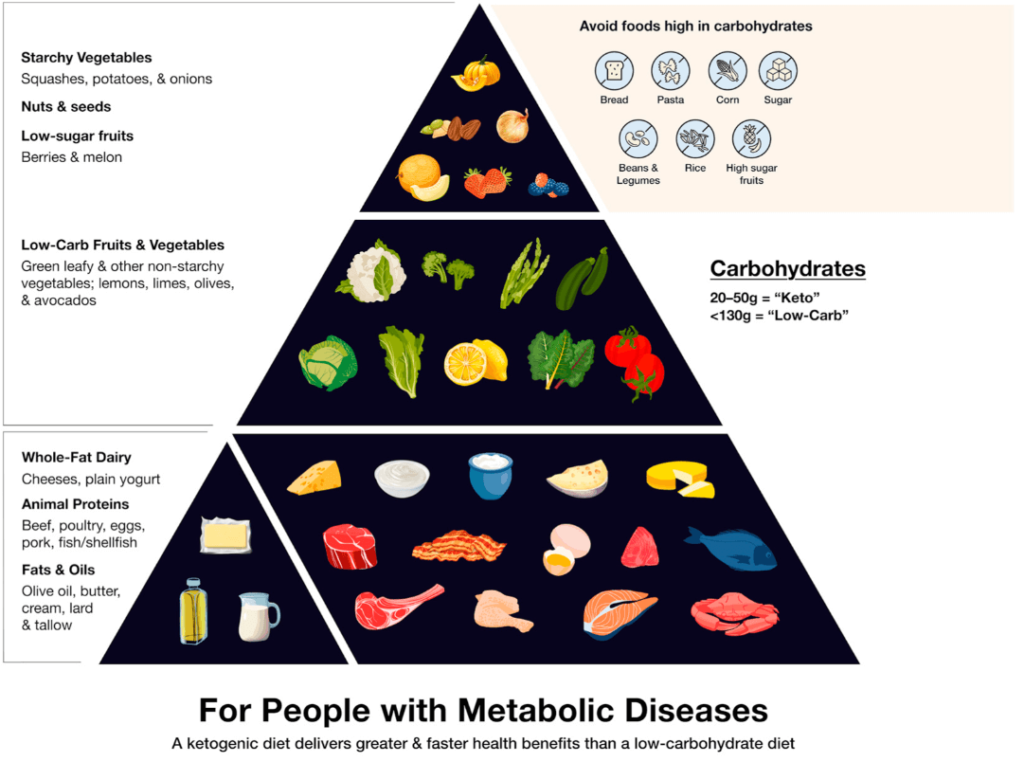For decades, the traditional food pyramid guided people toward a high-carbohydrate, low-fat diet. However, modern research challenges this approach, revealing that low-carb diets can offer significant health benefits. As a result, dietary guidelines are shifting towards a more flexible, personalized approach to nutrition.
The Shift from the Traditional Food Pyramid
The old food pyramid emphasized grains as the foundation of a healthy diet, limiting fats and proteins. However, studies now suggest that this model may have contributed to rising obesity and metabolic disorders. The modern approach focuses on whole, nutrient-dense foods rather than prescribing a strict macronutrient ratio. (www.mdpi.com)

Key Changes in the New Food Pyramid
- Flexibility in Macronutrient Intake
- Instead of a high-carb focus, newer guidelines acknowledge that low-carb diets can be beneficial, particularly for weight management and metabolic health.
- Prioritizing Nutrient-Dense Foods
- The outdated focus on processed grains is being replaced with whole foods, lean proteins, healthy fats, and fiber-rich vegetables.
- Personalized Nutrition
- The idea that everyone should eat the same way is fading. Instead, diets should be tailored to individual needs, whether high-protein, low-carb, or balanced eating.
Why Low-Carb Diets Are Gaining Recognition
- Better Blood Sugar Control: Reducing carbohydrate intake helps stabilize blood sugar levels, making it a strong option for those with insulin resistance or diabetes.
- Sustained Energy Levels: Unlike high-carb diets that cause energy crashes, low-carb eating promotes steady energy throughout the day.
- Improved Weight Management: Many people find it easier to control cravings and manage weight on a low-carb diet.
Moving Beyond the Old Food Pyramid
The shift from the traditional food pyramid to a more adaptable nutrition model marks a major step forward in dietary science. Recognizing that different diets work for different people allows for greater flexibility and improved health outcomes. Whether you follow a low-carb approach or another eating style, focusing on whole, unprocessed foods remains the key to long-term wellness.
What do you think about the shift away from the traditional food pyramid? Let me know in the comments below!
